Dza
Nlabephee Kefas Othaniel
Dza (glottocode: dzaa1238) also known as Jenjo is a minority language spoken in northeastern Nigeria. Most speakers of Dza live in villages on the northern bank of the Benue River, on both sides of the border between Adamawa and Taraba states. The Dza people claim to have come from the east, from a region called Za (Meek 1931). Dza [dzə̀] is the name of their land as well as the name of their language, while a person from Dza is called Yɨdzə. The Dza people are predominantly farmers and fishermen. The crops cultivated by the Dza people include: guinea-corn, maize, millet, groundnuts, rice, beans, sesame seeds and different varieties of vegetables. The annual island appearing when the Benue River retreats after the rainy season provides a rich soil for melon-seeds, sweet potatoes and short varieties of maize.

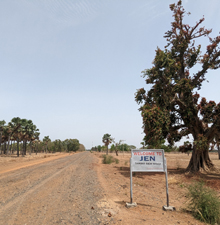
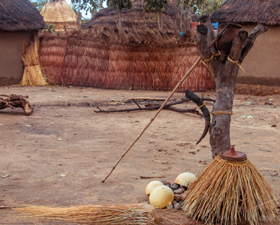
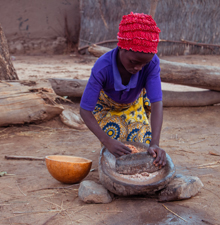
The Dza language is part of the poorly known Bikwin-Jen group (glottocode: bikw1235). A group whose affiliation to the Niger-Congo phylum is generally beyond doubt but whose exact position within this phylum remains unclear. The Dza language has three dialects, Nwabang, Dzakah and Ye, which are these days disappearing in favor of a single variety of the language. It is very difficult to estimate the number of speakers of Dza, since the more or less 100,000 people (see Ethnologue) who ethnically identify themselves as Dza are very often not speakers of the language. Historically, the language has lost many speakers to Bacama and Fulfulde, while today it is mostly Hausa that is replacing Dza among the younger generations. Storytelling, poetry, speech plays and other forms of verbal arts among the Dza speakers are falling out of practice and not being transferred to children, as is increasingly the case of the language itself. Until recently, the languages around the upper Benue valley were not studied or documented.
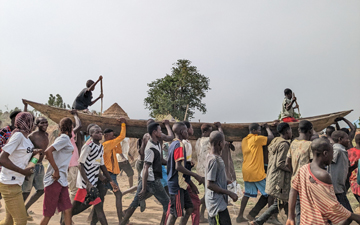
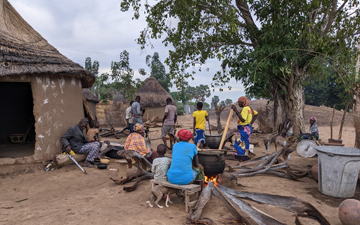
In 2013, Nlabephee, who is ethnically Dza himself, enrolled in the BA programme of the Linguistics and Translation department of TCNN Bukuru – University of Jos. His first fieldtrip in the Dza area was in 2015, however, he had limited access to equipment for linguistic fieldwork. The AdaGram project supported Nlabephee with equipment and his travel for fieldwork in the Dza area. Since then, Nlabephee has worked with a number of Dza speakers as consultants including the late Ivah of Jen, HRH Alhaji Ismaila Agwaru, the Zapte of the Dza people HRH Ivah Nvi Taa Alexander Ma’aji, Hamman Sule, Bariya Pinpin, Mayafi Viladiye, Liatu Tiyo, Erina Adamawa. Nlabephee also did a masters in phonetics and phonology at the Université Paris Cité (Paris 7). As part of the AdaGram project and thanks to the Individual Graduate Scholarship of the Endangered Languages Documentation Programme (ELDP), he is now working on a PhD thesis on the documentation and grammatical analysis of Dza.
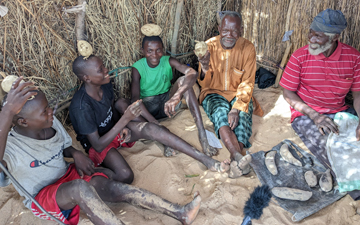
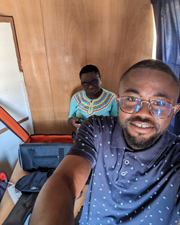
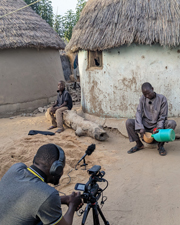
References:
- Benson, Peace. 2020. Ideophones in Dzə (Jenjo), an Adamawa language of Northeastern Nigeria. Language in Africa 1(3). 336–352. doi: 10.37892/2686-8946-2020-1-3-336-352.
- Kleinewillinghöfer, Ulrich. 2015 (ms.). Bikwin-Jen - Comparative Wordlist (Swadesh 100).

- Kleinewillinghöfer, Ulrich. 1996. Die nordwestlichen Adamawa-Sprachen - Eine Übersicht. In Uwe Seibert (ed.), Afrikanische Sprachen zwischen Gestern und Morgen : Beiträge zur Dokumentation, Klassifikation und Rekonstruktion, 80–103. Köln: Rüdiger Köppe.
- Meek, Charles K. 1931. Tribal Studies in Northern Nigeria. B. II. London: Kegan Paul, Trench, Trubner & Co.
- Norton, Russel & Nlabephee Kephas Othaniel. 2020. The Jen language cluster: A comparative analysis of wordlists. Language in Africa 1(3). 17-99. doi: 10.37892/2686-8946-2020-1-3-17-99.

- Othaniel, Nlabephee Kefas 2017. A phonological comparative study of the Jen language cluster. Jos: TCNN BA thesis.

- Othaniel, Nlabephee Kefas 2020. Verbal morphosyntax of Dza, an Adamawa language of Taraba State. Jos: TCNN MA thesis.

- Othaniel, Nlabephe Kefas. 2022. A phonetic study of breathy voicing in Dza. Paris: Université Paris Cité MA2 thesis.







